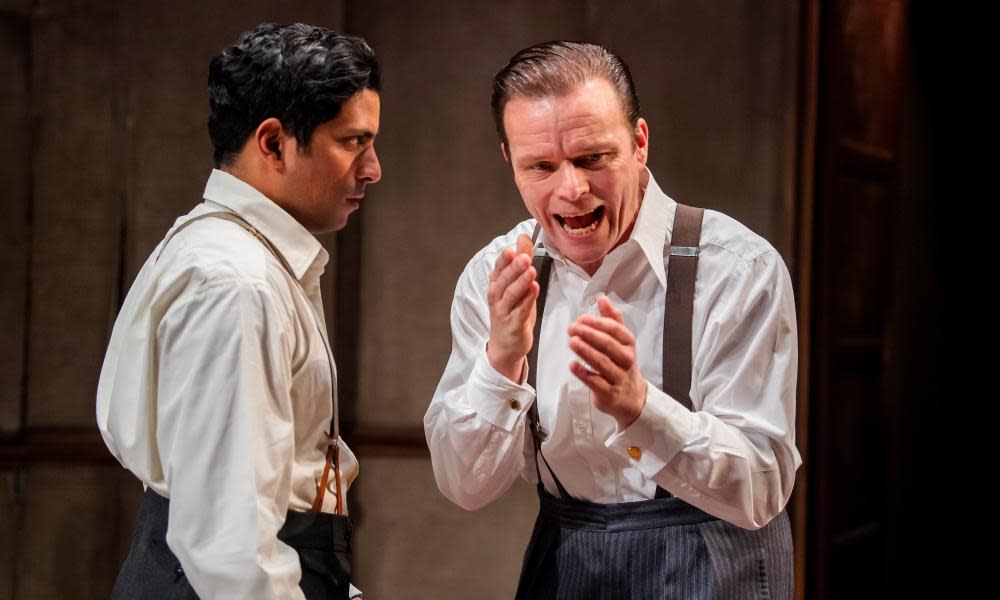The Dumb Waiter review – Pinter's enigma picks at the roots of power

There is an “amusing story” about the first performance of The Dumb Waiter at the Hampstead Theatre Club in 1960, according to its director, James Roose-Evans. The run was packed out, he remembers, despite the disaster of Harold Pinter’s second play, The Birthday Party, which was cancelled after a week. But though this third play was a sensation, Roose-Evans says that “there were all these very smart people arguing about what it was about – what the play meant”.
We know better now not to expect clearcut motivations or meanings from this tight two-hander about hitmen waiting for their next job, and its 60th anniversary production at the same (renamed) venue seems to accentuate its deliberate enigmas.
Beckett’s influence on Pinter is clear: the defining action in The Dumb Waiter is Ben and Gus’s waiting, like Vladimir and Estragon. Under Alice Hamilton’s direction, it feels even more absurdist despite a social-realist veneer and thrillerish undertow. There is a vaudevillian edge to the men’s gangster-style shirts and braces, as well as the protracted silence of the opening scene when Ben (Alec Newman) lies on a bed reading the paper as Gus (Shane Zaza) fiddles with his shoelaces in a mime that just falls short of musical-hall skit.
This feels like a very appropriate play for our times: a short, sharp one-act drama with a minimal cast that is especially conductive to social distancing, and which raises questions around authority, power and unnamed oppression in our era of strongman politics.
James Perkins’ set has clean lines of whites, greys and beiges, with just two single beds on stage. The dumb waiter itself is camouflaged at first, and its sudden whirring into motion is a jumpy moment, signalling the fear that rises among the men as it sends down its ever more elaborate demands for food.
There is a clear pecking order between Ben and Gus, as the former bullishly reminds the latter (“Who’s the senior partner here?”). But their bristling relationship does not have the same gladiatorial male dynamics of The Birthday Party or the displays of ornamental masculinity that are often seen among Pinter’s men.
Ben’s assertion of power comes in a verbal battle to “light the kettle” (not “light the gas”), but on the whole these men quibble rather than fight, and they have a casual intimacy that amounts to a kind of camaraderie. The comedy of menace comes not from within their power dynamics, but the tyrannical and opaque authority that the dumb waiter represents and which threatens both men.
Newman’s Ben is an inscrutable character – something of the consummate hitman who holds his nerve and withholds information from Gus. Zaza plays Gus with a growing vulnerability, but also a kind of angry inquisitiveness around the nature of power and truth – an intellectual challenge to authority that ultimately symbolises his undoing. “We have been through our tests, haven’t we?” he says angrily to Ben as the dumb waiter sends its orders. “What’s he playing these games for?”
Tension and suspense is ratcheted up in the latter part of the play; even if it does not build to a thrillerish buzz of fear, it has enough dramatic power to leave us pondering the play’s meanings.
The Dumb Waiter is at Hampstead theatre, London, until 16 January.


